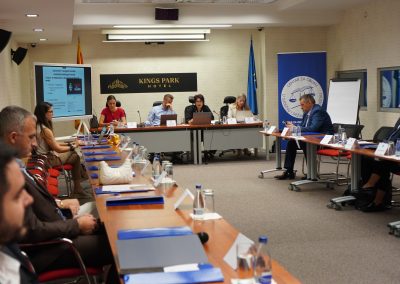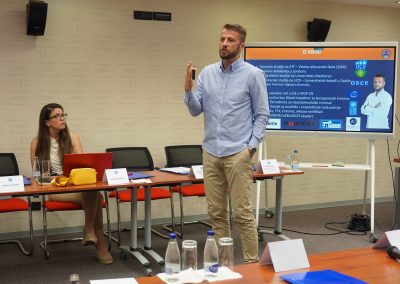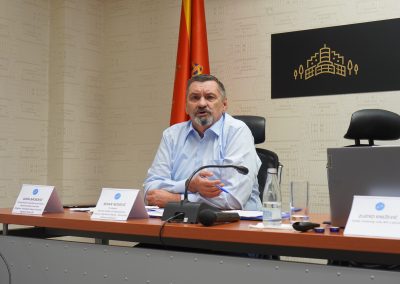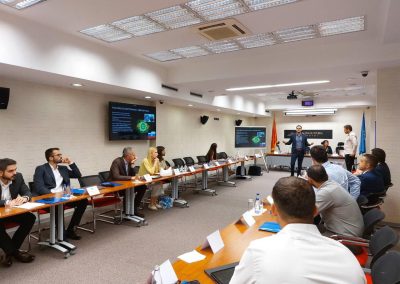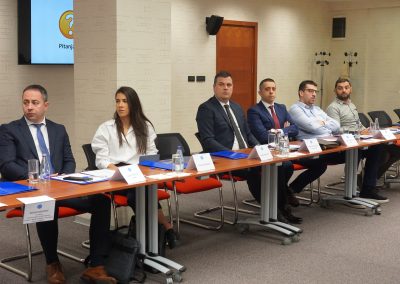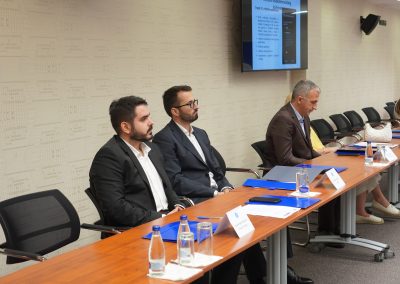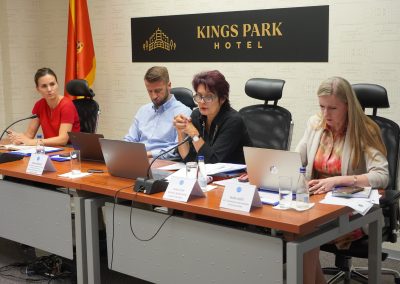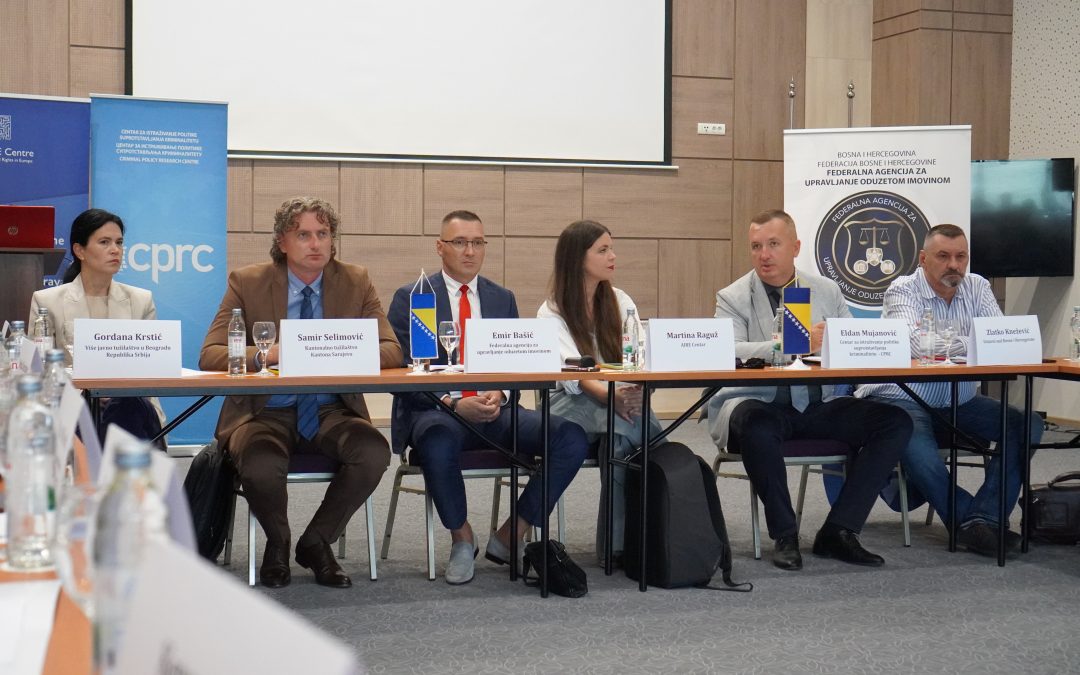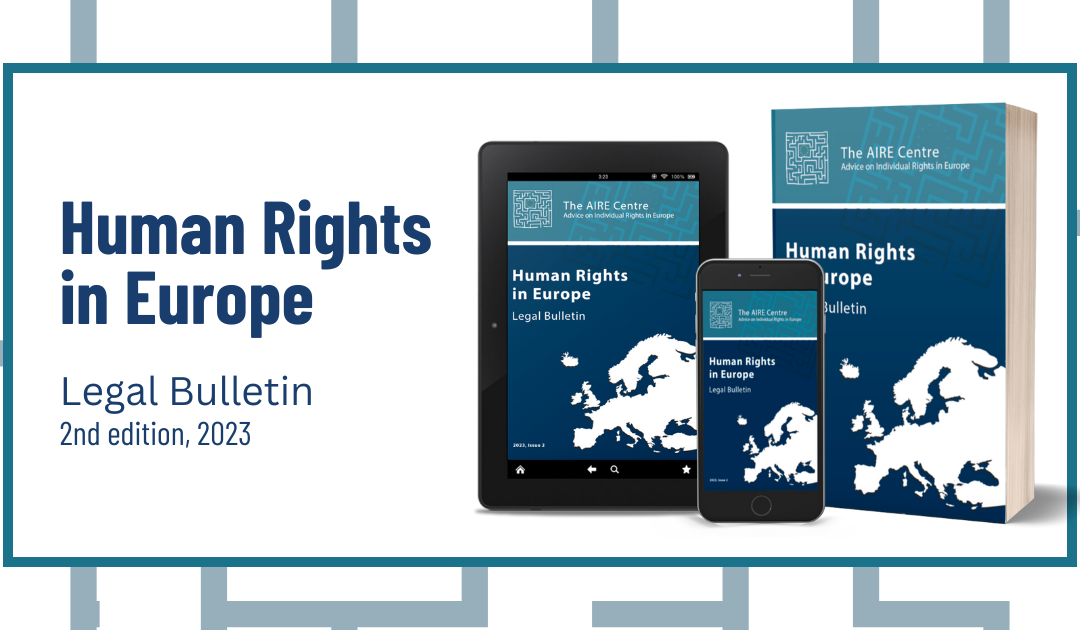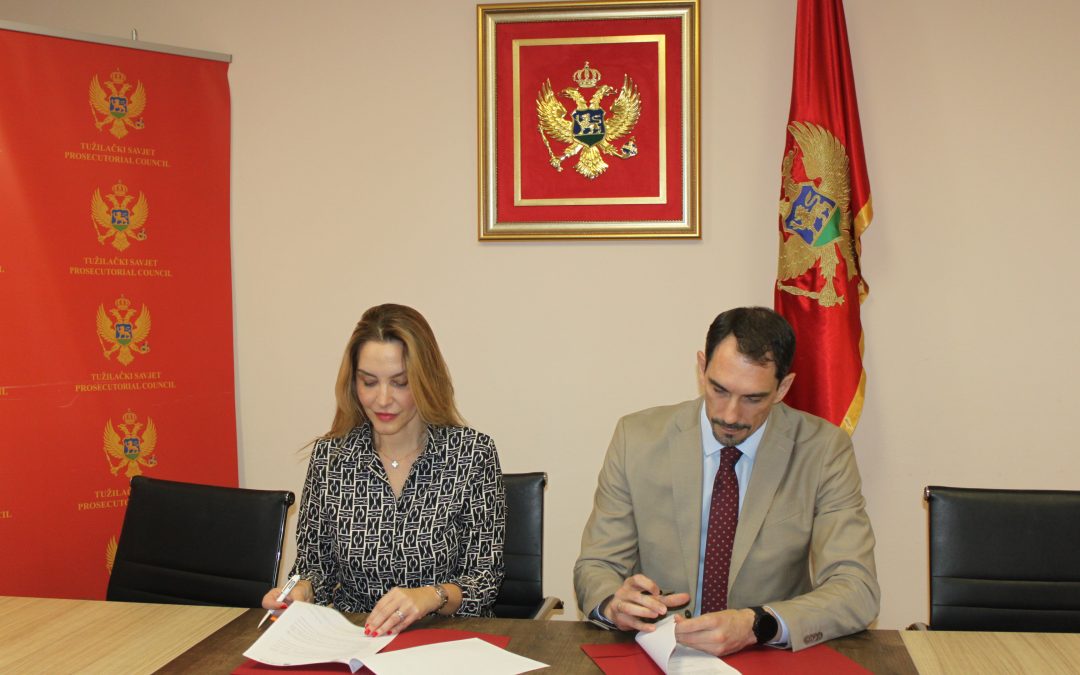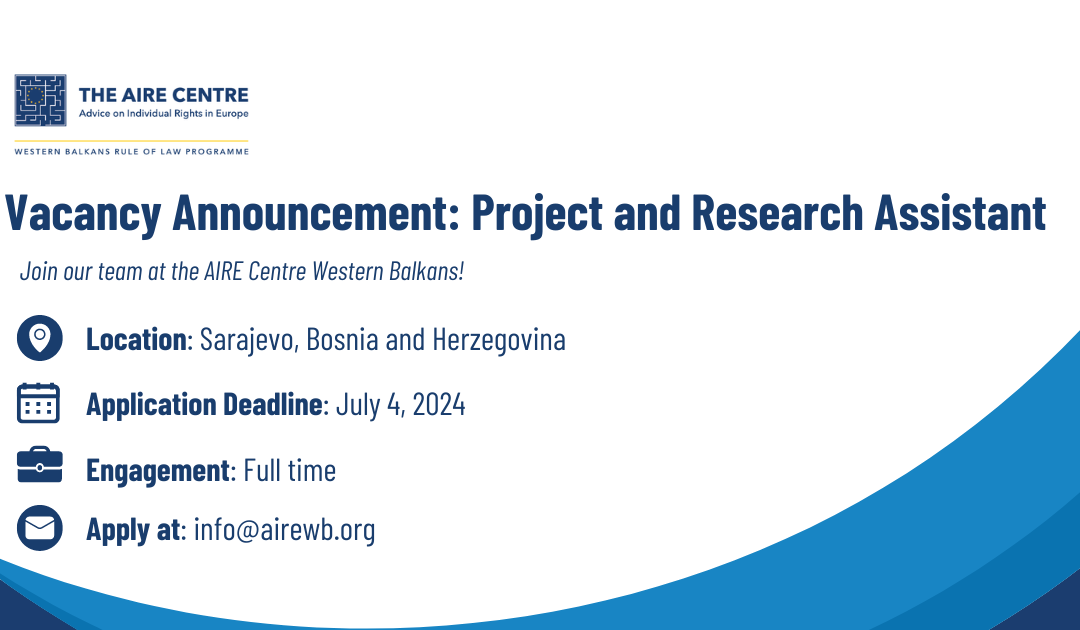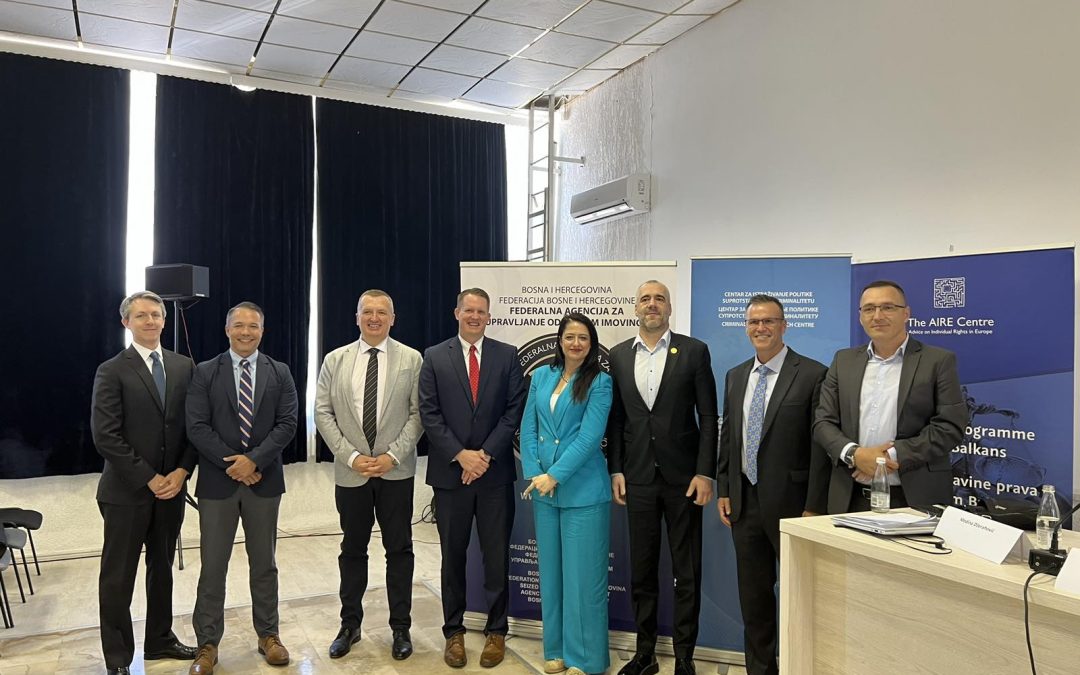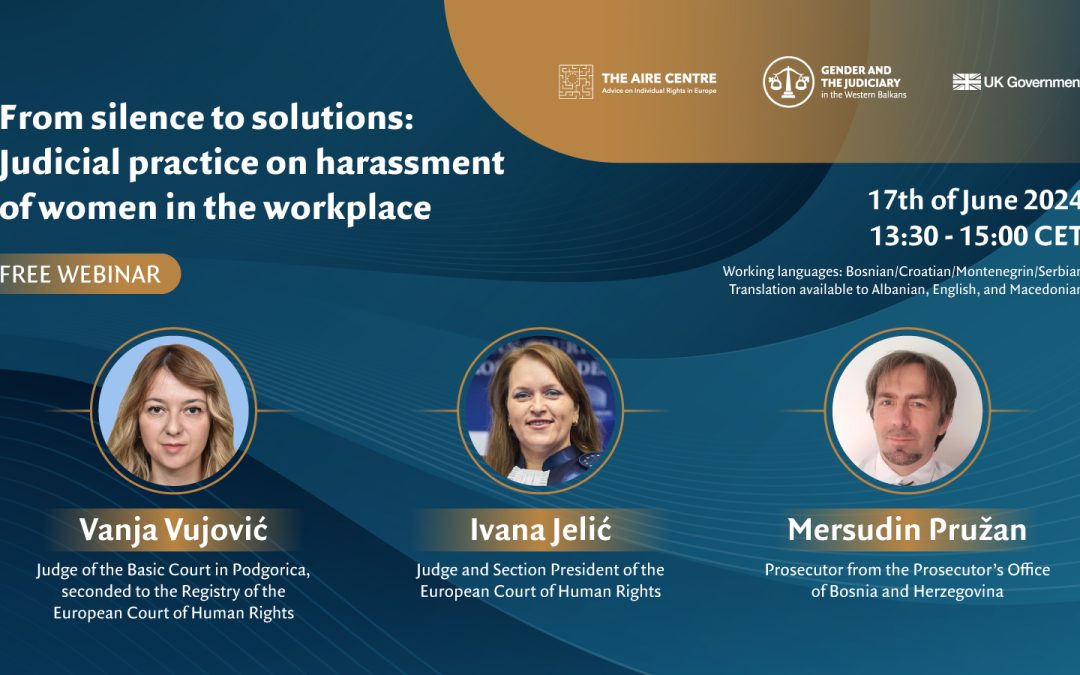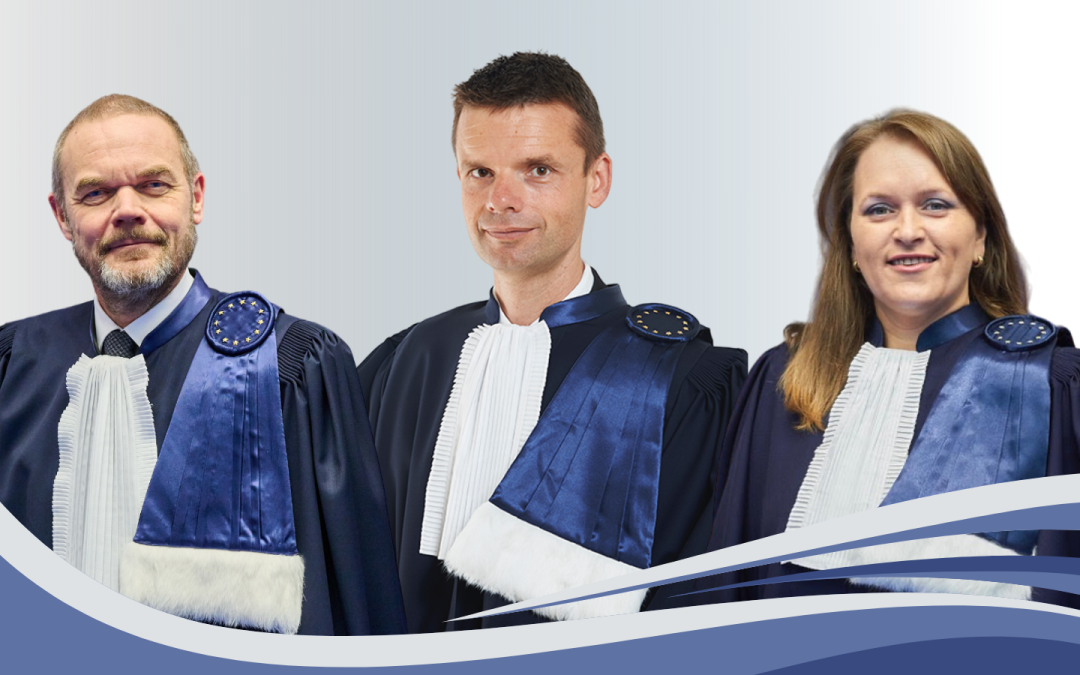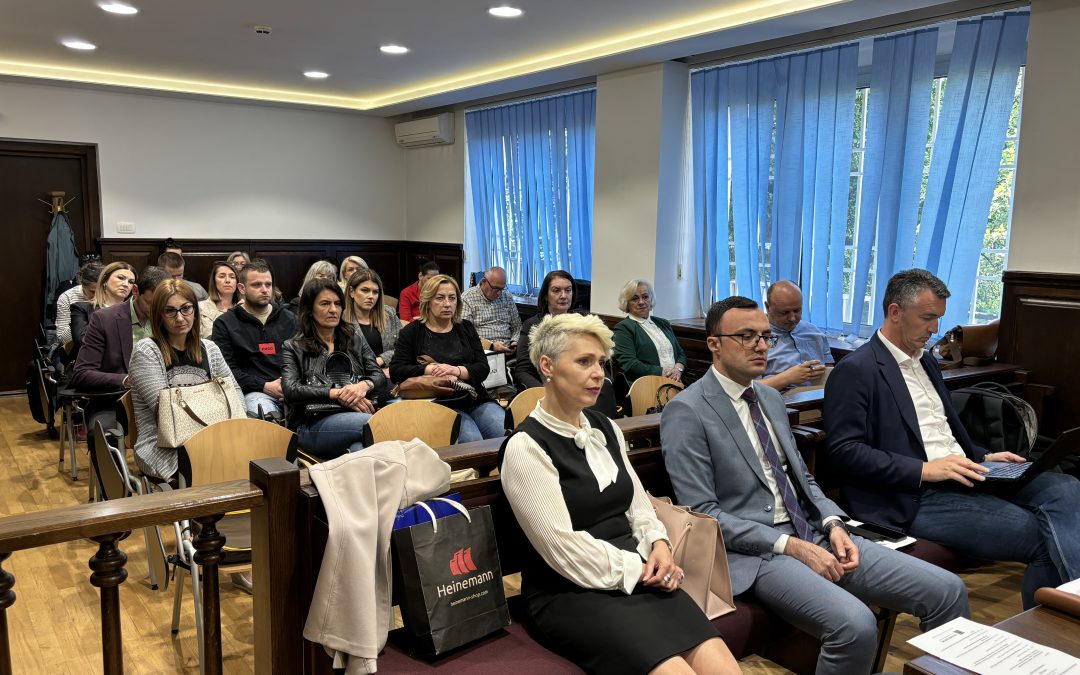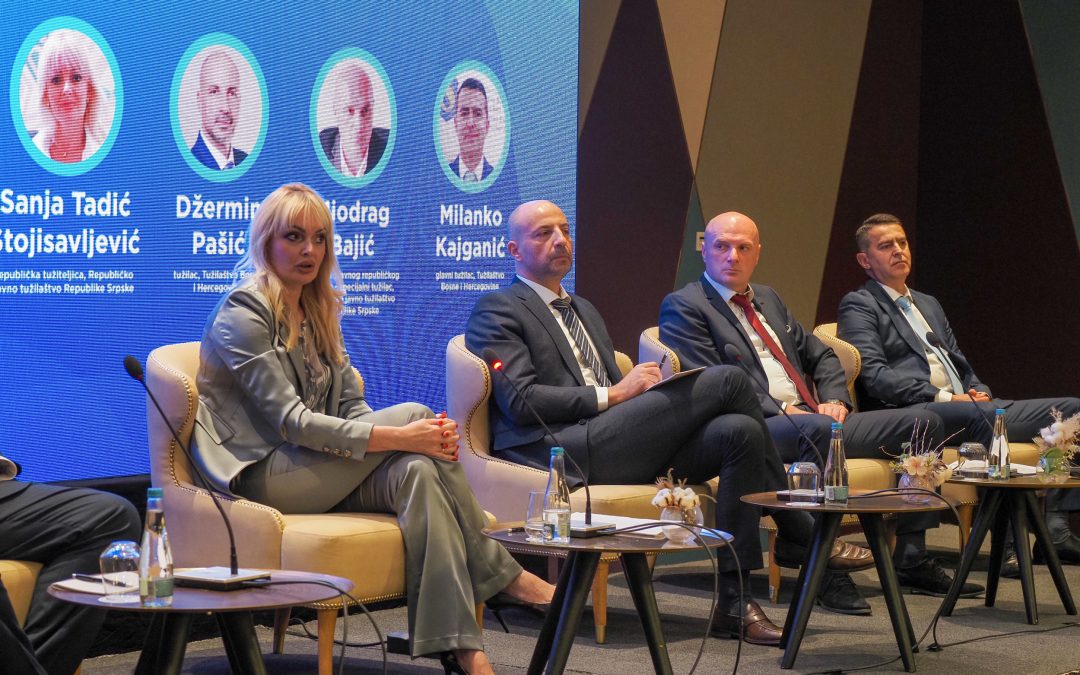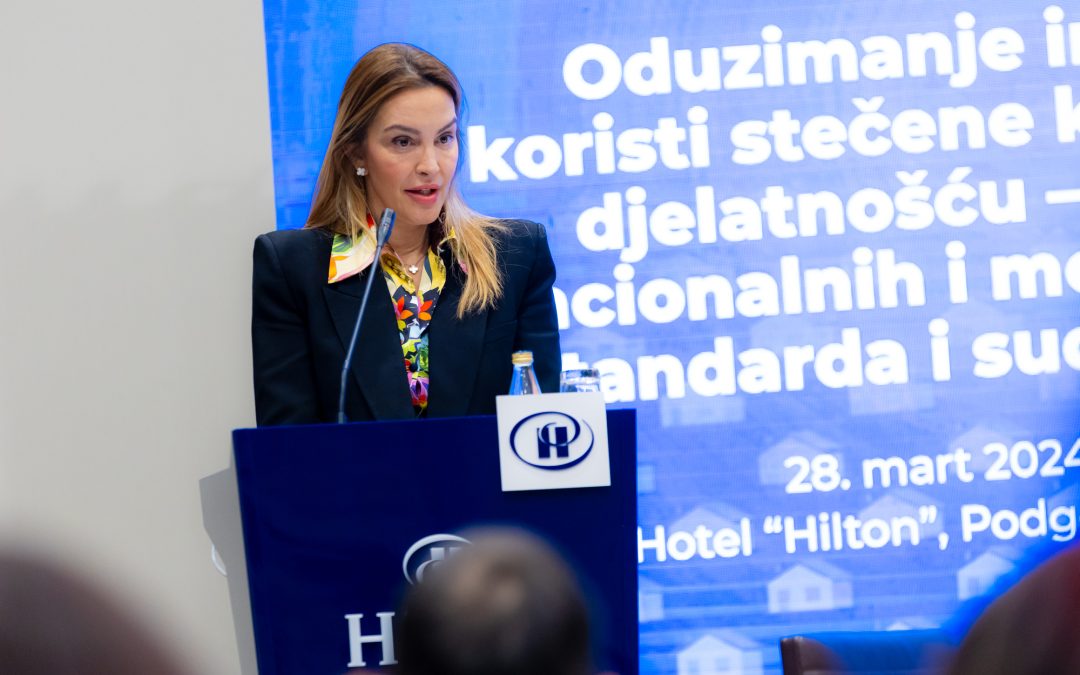New technologies have become an integral part of organised crime in Montenegro, requiring new approaches in investigating and proving these criminal acts. Gaps in the legal framework, combined with a shortage of resources and experts, are the main obstacles for judicial and investigative bodies in tackling crime in the digital space. Despite these challenges, notable progress has been achieved in recent years, as showcased at the expert seminar “Cybercrime and the Use of Information and Communication Technologies in Criminal Investigations with a Focus on Encrypted Communications,” held in Podgorica.
The AIRE Centre and the Center for Judicial and Prosecutorial Training of Montenegro, with the support of the British Government, gathered key representatives of the judiciary and police, as well as experts from Montenegro and the region.
Research by the AIRE Centre shows that digitalization impacts all facets of modern life, including organised crime, with an increasing number of criminals using technology for planning and committing crimes.
“Encrypted communication applications are available to everyone and facilitate the exchange of information and the trade of illegal goods, such as narcotics and weapons. Moreover, computer crimes, like DDoS attacks, BEC scams, and phishing, have broad security and economic implications, affecting private companies, government institutions, and citizens. Furthermore, cryptocurrencies are increasingly linked to criminal activities, especially in money laundering or hiding illegally acquired assets”, said Đina Popović, project manager of the AIRE Centre.
“While, on one hand, digital development brings new challenges for the judiciary, on the other hand, the increasing prevalence of technology opens new opportunities for using electronic evidence and information. The AIRE Centre will continue to support the judiciary of Montenegro and the region on this path”, said Popović.
This seminar provided an opportunity for experts from Montenegro and the region to exchange knowledge and experiences. Among the speakers were Vesna Pean, judge of the Court of Appeals of Montenegro, Zlatko Knežević, retired judge of the Constitutional Court of Bosnia and Herzegovina and consultant for the AIRE Centre, Jakša Backović, senior police inspector of the Police Directorate of Montenegro, Bojan Nedović, IT expert of the Special State Prosecutor’s Office of Montenegro, Stanoje Rnić, cybercrime investigator and executive director of the Archibald Foundation, Stefan Živković, blockchain forensic analyst from Rexxfield, and Armin Selmanović, state prosecutor of the High State Prosecutor’s Office in Podgorica.
Zlatko Knežević stressed that digital crimes are no longer a future threat but a current reality, and this conference aimed to prepare participants for these challenges.
“This three-day conference achieved an excellent result in fostering mutual cooperation and discovering the modern synthesis of new technologies and criminal proceedings. We examined the functioning of emerging crimes that heavily exploit digital technologies and discussed strategies to combat them, focusing on digital forensics, prosecutorial practices, and judicial decision-making, thus paving the way for new areas of cooperation”, said Knežević.
Stanoje Rnić, a cybercrime investigator, executive director, and head of investigations at the Archibald Foundation, noted that “we live in a world of disruptive technologies like blockchain, artificial intelligence, and encryption, which bring numerous benefits to humanity, improving privacy, accelerating business, and enabling the development of new business solutions.”
“However, these technologies are often exploited by malicious actors. Understanding the vectors of hacker attacks and the methodologies of committing crimes, such as fraud and phishing attacks, where these technologies are abused, is crucial for effectively combating and preventing such malicious activities. Collecting evidence from communication applications using end-to-end encryption solutions and understanding cryptocurrency transactions is a complex process that requires advanced technological tools and an understanding of cryptographic methods, communication protocols, and blockchain technology”, explained Rnić.
“The current challenges encompass technical complexity, legal restrictions, limited resources, and the fast pace of technological advancement. However, there are substantial opportunities to enhance practices, boost resources, strengthen regional collaboration, and create specialised teams. Training in these areas significantly aids in the effective development and proper use of these technologies, helping to prevent their misuse and tackle the outlined challenges effectively”, he added.
An essential segment of progress lies in the education of judicial officials to enhance every link in the chain of justice and improve inter-institutional and international cooperation, which is crucial for timely response and ultimately deterring such crimes in the future.
“Modern technology and the information revolution have improved the quality of life, making it impossible to imagine daily life without the support provided by information technologies. On the other hand, this rapid development has also produced negative consequences, such as cybercrime, which is constantly increasing. There are more and more criminal acts committed via the internet and information technologies, making this type of crime not only a national but also a global problem”, said Maša Adžić, acting director of the Secretariat of the Center for Judicial and Prosecutorial Training of Montenegro.
“For judges and prosecutors to adequately respond to cybercrime threats and computer system abuses and to be ready to properly use electronic evidence, continuous education and improvement of knowledge in this area are essential”, concluded Adžić.
